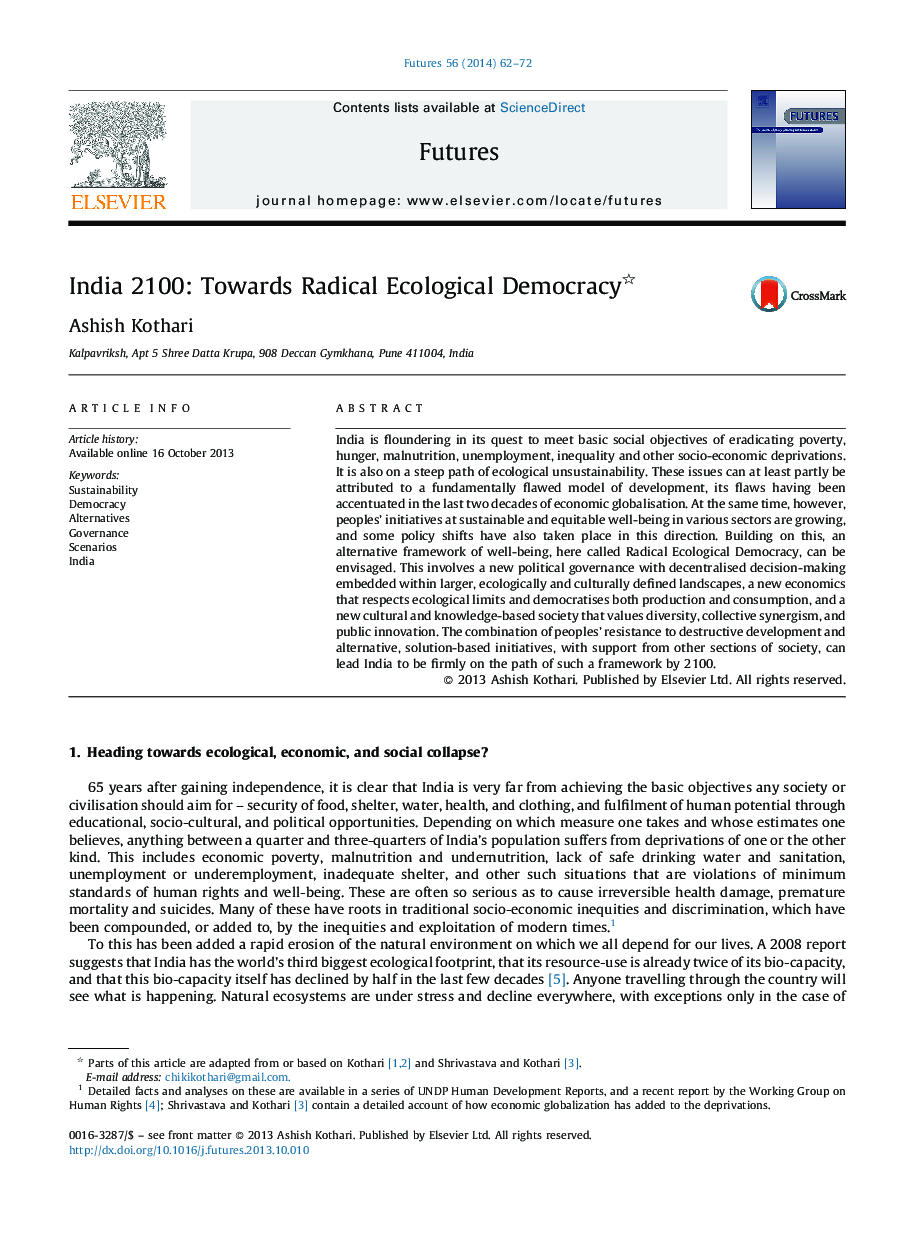| Article ID | Journal | Published Year | Pages | File Type |
|---|---|---|---|---|
| 1015521 | Futures | 2014 | 11 Pages |
India is floundering in its quest to meet basic social objectives of eradicating poverty, hunger, malnutrition, unemployment, inequality and other socio-economic deprivations. It is also on a steep path of ecological unsustainability. These issues can at least partly be attributed to a fundamentally flawed model of development, its flaws having been accentuated in the last two decades of economic globalisation. At the same time, however, peoples’ initiatives at sustainable and equitable well-being in various sectors are growing, and some policy shifts have also taken place in this direction. Building on this, an alternative framework of well-being, here called Radical Ecological Democracy, can be envisaged. This involves a new political governance with decentralised decision-making embedded within larger, ecologically and culturally defined landscapes, a new economics that respects ecological limits and democratises both production and consumption, and a new cultural and knowledge-based society that values diversity, collective synergism, and public innovation. The combination of peoples’ resistance to destructive development and alternative, solution-based initiatives, with support from other sections of society, can lead India to be firmly on the path of such a framework by 2100.
